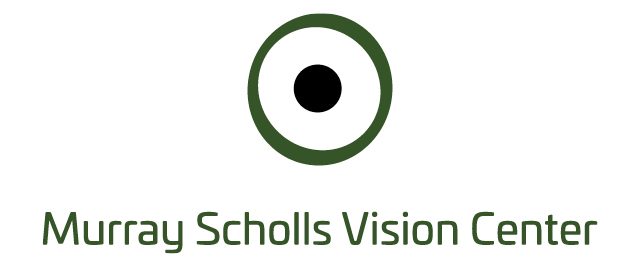
Your eyes are your window to the world and keeping them healthy should be a priority. One of the most important aspects of maintaining your vision is through comprehensive eye care, which includes regular, thorough eye exams.
At Murray Scholls Vision Center, we believe in the power of comprehensive care for early detection of serious eye diseases like glaucoma, cataracts, and macular degeneration.
Here’s how comprehensive eye exams can help identify these conditions early and protect your vision for the long term.
Detecting Glaucoma Before Vision Loss Occurs
Glaucoma is often called the “silent thief of sight” because it develops gradually and typically without noticeable symptoms. It occurs when the pressure inside the eye increases, leading to damage to the optic nerve. Left untreated, glaucoma can result in permanent vision loss, but early detection can prevent this.
During a comprehensive eye exam, your eye pressure is measured using tonometry, and your optic nerve is carefully evaluated. Regular exams are crucial for catching glaucoma early before any vision loss occurs. With early treatment, vision can often be preserved.
Identifying Cataracts in the Early Stages
Cataracts are a common age-related condition that causes the lens of the eye to become cloudy, resulting in blurry vision, difficulty seeing at night, and increased sensitivity to light. While cataracts typically develop slowly, they can significantly impact your vision if not treated.
Comprehensive eye exams allow your optometrist to detect early signs of cataracts. By identifying cataracts in the early stages, your optometrist can monitor their progression and recommend cataract surgery when necessary to restore clear vision.
Spotting Early Signs of Macular Degeneration
Age-related macular degeneration (AMD) is the leading cause of vision loss in people over 50 and affects the macula, the part of the retina responsible for sharp central vision. AMD makes it difficult to read, recognize faces, or see fine details.
Regular comprehensive eye exams include retinal imaging and detailed examination of the macula. Early detection of AMD can help slow the progression of the disease through treatments and lifestyle changes that protect your central vision.
Monitoring for Diabetic Retinopathy
For individuals with diabetes, diabetic retinopathy is a serious condition that occurs when high blood sugar levels damage the blood vessels in the retina. Left untreated, it can lead to vision loss or blindness.
Comprehensive Eye Exam and a Basic Vision Check
During a comprehensive eye exam, your optometrist will closely examine the retina for any signs of blood vessel damage or swelling. Early detection of diabetic retinopathy allows for timely treatment and management, helping to prevent further damage to your vision.
Early Detection of General Eye Health Issues
In addition to detecting specific eye diseases, comprehensive eye exams also assess your overall eye health. During your exam, your optometrist will check for issues such as dry eyes, corneal damage, and eye infections. These conditions can escalate if not treated early.
Whether it’s prescribing treatment for dry eyes or monitoring changes in your cornea, comprehensive care ensures that any problems are caught and treated promptly.
Health Monitoring Beyond Your Eyes
Your eyes provide important clues about your overall health. Comprehensive eye exams can reveal signs of systemic conditions like diabetes, high blood pressure, and autoimmune disorders.
By monitoring your eye health, optometrists can often detect these conditions early and refer you to a healthcare provider for further evaluation.
Why Comprehensive Eye Care Is Essential for Early Detection
Many eye diseases develop slowly and without symptoms, which means you may not notice a problem until your vision is already affected. Comprehensive eye exams are designed to detect these conditions early, allowing for timely treatment and preventing long-term damage to your vision.
Here’s why regular comprehensive care is so important:
- Prevention of Vision Loss: Early detection is the key to preventing irreversible vision loss. Many conditions, like glaucoma and AMD, can be managed effectively when caught early.
- Tailored Treatment Plans: Based on the results of your comprehensive exam, your optometrist can create a personalized treatment plan to manage your eye health and protect your vision.
- Ongoing Health Monitoring: Comprehensive care includes monitoring your eye health over time, ensuring that any changes or new issues are addressed as they arise.
Request an Appointment at Murray Scholls Vision Center
At Murray Scholls Vision Center, we are committed to helping you protect your vision and detect potential issues before they affect your quality of life.
Regular comprehensive eye exams are the best way to ensure early detection of eye diseases and maintain long-term eye health. If it’s been more than a year since your last exam, or if you are noticing changes in your vision, don’t wait—request an appointment with us and take the first step toward safeguarding your eyesight.

